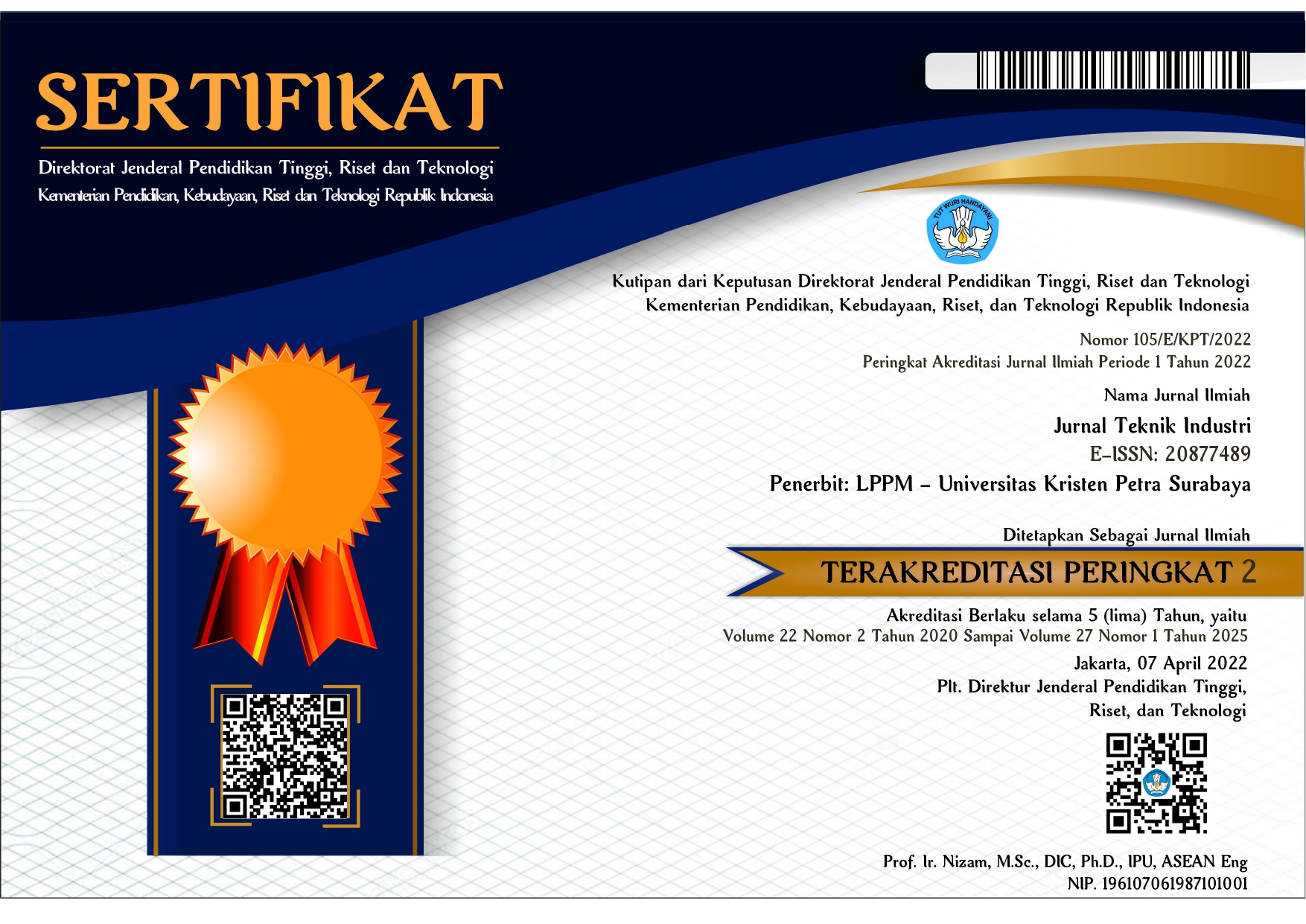Bayesian-based Project Monitoring: Framework Development and Model Testing
 :
:
https://doi.org/10.9744/jti.17.2.61-70
Keywords:
Bayesian Networks, Risk Register, Risk Factors, Project MonitoringAbstract
During project implementation, risk becomes an integral part of project monitoring. Therefore. a tool that could dynamically include elements of risk in project progress monitoring is needed. This objective of this study is to develop a general framework that addresses such a concern. The developed framework consists of three interrelated major building blocks, namely: Risk Register (RR), Bayesian Network (BN), and Project Time Networks (PTN) for dynamic project monitoring. RR is used to list and to categorize identified project risks. PTN is utilized for modeling the relationship between project activities. BN is used to reflect the interdependence among risk factors and to bridge RR and PTN. A residential development project is chosen as a working example and the result shows that the proposed framework has been successfully applied. The specific model of the development project is also successfully developed and is used to monitor the project progress. It is shown in this study that the proposed BN-based model provides superior performance in terms of forecast accuracy compared to the extant models.References
Anbari, F, Earned Value Method and Extension, Project Manage Journal, 34(4), 2003, pp. 12-23.
Arizaga, J.F., A Methodology for Project Risk Analysis Using Bayesian Belief Networks Within A Monte Carlo Simulation Environment, University of Maryland, USA, 2007.
Ayuningtyas, R., and Hartono, B., Project Monitoring using Bayesian Networks: Framework and Model, Paper presented at the 5th AUN/SEED-net Regional Conference on Manufacturing Engineering & the 1st Human Factors and Ergonomics Society of the Philippines Conference, De LaSalle University, Manila, Philippines, 2013
Gardoni, P., Reinschmidt, K.F., and Kumar, R., A Probabilistic Framework for Bayesian Adaptive Forecasting of Project Progress, Zachry Department of Civil Engineering, Texas A&M University, USA, 2007.
Jacob, D., Forecasting Project Schedule Completion with Earned Value Metrics, The Measurable News 3, 2003, pp. 7-9.
Lipke, W., Schedule is Different, The Measurable News 3, 2003, pp. 31-34.
PMI, Guide to Project Management Body of Knowledge 2000 ed. Pennsylvania, Project Management Istitute, USA, 2000.
Standish Group, Chaos Report, The Standish Group International Inc., Boston, 1995.
Vandervoorde, S., amd Vanhoucke, M., A Comparison of Different Project Duration Forecasting Methods Using Earned Value Metrics, International Journal of Project Management, 24, 2006, pp. 289-302.
Downloads
Published
How to Cite
Issue
Section
License
Articles published in the Jurnal Teknik Industri: Jurnal Keilmuan dan Aplikasi Teknik Industri will be Open-Access articles distributed under the terms and conditions of the Creative Commons Attribution License (CC BY).
![]()
This work is licensed under a Creative Commons Attribution License (CC BY).


















